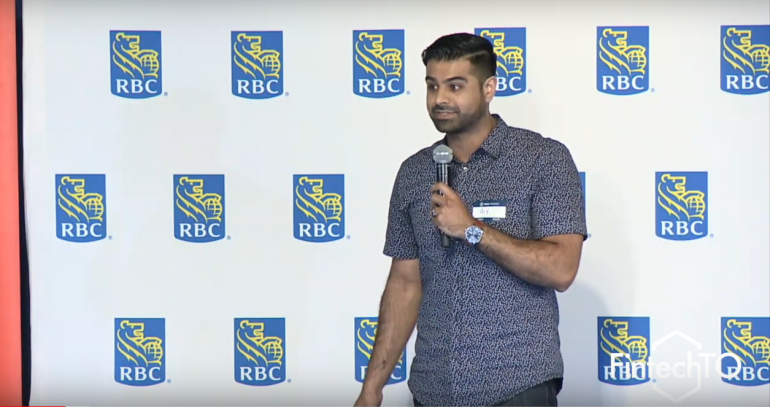At the latest FinTechTO, Aly Dhalla, CEO and co-founder of Toronto-based Finaeo, shared some of the best practices for identifying the “shiny penny syndrome,” and what founders should do if they experience it.
“Shiny penny syndrome. It’s one of those things that we maybe take for granted or don’t quite understand, but it can have a ton of implications on you as a founder and your team overall,” said Dhalla.
Dhalla kicked off his presentation by explaining what the shiny penny syndrome is: when founders and their teams see a “shiny penny” or a new growth opportunity, all of their attention is focused on that until they see a newer, shinier penny — or a better opportunity.
Dhalla said following the first successful six months of Finaeo, a digital assistant for financial advisors, the company picked up a shiny penny when someone asked whether Finaeo could scale into enterprises.
The Finaeo team dived into determining whether Finaeo’s technology could apply to enterprises. Dhalla said the team spent weeks meeting with investors and banks, only to be told that their idea was not going to work.
“It’s super important, as a founder, to trust your own gut.”
“We were actually at this point in time where we felt like we’d lost our way,” said Dhalla. “We didn’t know if enterprise was what we should focus on anymore, and I can tell you even the most experienced advisors in our network couldn’t help us go by the shiny penny syndrome.”
During his presentation, Dhalla said the best way for founders to deal with the shiny penny syndrome is by understanding the root cause of why certain decisions and ideas work, and others don’t. In Finaeo’s case, Dhalla followed a framework he calls the “Five Why’s” to understand the company’s pitfalls.
“Usually, we’re not going to deviate from course when things are going well. It’s the times that aren’t going so well that you actually struggle the most.”
“If you end up thinking about the root cause or root cause scenarios, that can give you a ton of insight as to what actually went wrong, and why,” said Dhalla. “In our case, we realized that instead of trying to focus on solving the problem that we knew how to solve, we actually tried to [please] an investor and that’s how we got caught with the shiny penny.”
Dhalla added that startup founders often get caught picking up a shiny penny because of their innate curiosity.
“The same thing that makes us amazing founders is the same reason why we end up picking up that shiny penny,” said Dhalla. “It’s our curiosity. It’s our thirst for solving the tough problems. It’s the hunger we have to go and chase down a rabbit hole at two in the morning…we all kind of have the same root cause that we are curious, and therefore, we may have pitfalls.”
To help founders avoid the Shiny Penny Syndrome, Dhalla suggested some questions founders can ask themselves if they are susceptible to picking up a shiny penny, or diverting their entire attention on another idea when things aren’t going well.
Related: Finaeo raises $2.25 million to automate administrative processes for financial advisors
“Are the last three growth experiments relative to the value proposition that we promised to our core customer? Are the next five features on our roadmap actually delivering on our customer problem, or is it based on a perceived bias internally?” suggested Dhalla. “All of us are more susceptible to going up and picking shiny pennies, and it’s easy to identify when these times are happening. Usually, we’re not going to deviate from course when things are going well. It’s the times that aren’t going so well that you actually struggle the most and are most susceptible to the shiny penny syndrome.”
Dhalla said that when founders are likely to pick up a shiny penny, it’s not only key for them to talk to mentors, advisors, and their network, but also trust their own instinct.
“It’s super important, as a founder, to trust your own gut and to know that at the end of the day, you’re the only person will all of the information right in your head,” said Dhalla. “Also, you need an incredible amount of patience. After we’ve gone ahead and we’ve put all of the strategies into place…we put together a great plan together and then we knee-jerk and we deviate so fast the moment something goes wrong, most likely it’s not about a big strategic overhaul but it’s more about tweaking a small dial — so have patience, and thou shall be rewarded.”
Watch the full presentation below:
The next FinTechTO takes place on October 23. Get your tickets now!


